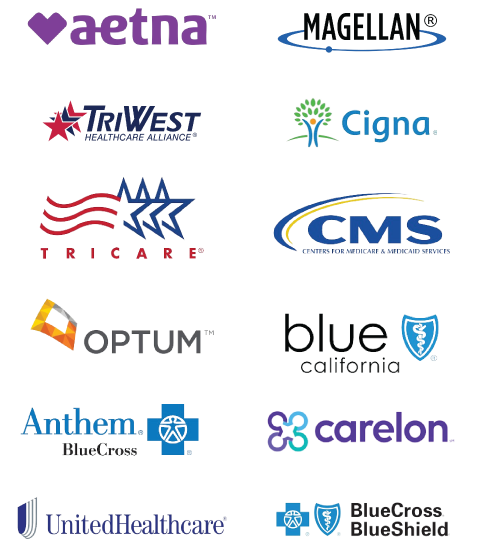
If your loved one is struggling with Xanax, either from a prescription or purchased illegally, it can be heartbreaking. Xanax, the most popular brand name of Alprazolam is a medical drug used to help people deal with stress, anxiety, and panic. It’s also highly addictive – meaning that even people who use it a few times recreationally can develop a habit. And, while relatively mild when used in prescription doses, Xanax can be mixed with alcohol or taken in higher doses to create a euphoric and relaxed high that many people prefer over alcohol or another intoxicant.
Today, over 4.8 million Americans abuse benzodiazepines like Xanax. A further 1.2 million Americans have an addiction to prescription sedatives like Xanax – with many more struggling with the drug outside of a prescription. Watching that can be incredibly painful, as your loved one works themselves into a worse and worse mental state, losing control over their substance use, and often of other parts of their life. You want to help, but what you can you do?
Talk to Them
Talking to a loved one with an addiction can be extremely difficult. Sedatives, especially benzodiazepines, have a tendency to change how people behave. Your loved one may be more anxious, more paranoid, and more prone to violence and irritability than they ever were off the drug. At the same time, they need people to talk to them more than ever.
Here, you can make a difference by talking about the drug, by talking about misuse, and by talking about how they can get help.
- Pick the Right Time – Choose to have conversations where you’re alone or have supportive people that your loved one trusts. Trying to talk about topics around addiction in public can force them to engage rather than walking away, but may just cause them to shut down. Choosing a time and place where everyone has time and is comfortable is important. E.g., going out to a restaurant, having a conversation before going to an event, or before work is probably a bad idea.
- Put Them First – You’re worried about your loved one, you should let them know. Often, that means pitching the problem as being concerned about them. For example, “I’m worried about you and your health, Xanax is hurting you”, instead of “I’m worried about how much Xanax you’re using”. By shifting the focus to them, their health, and their mental health, you make it more difficult for your loved one to ignore your concern.
- Discuss Xanax Usage – If you can have a conversation around how much Xanax they are using, when, and why, you can get a better idea of how bad the problem is. For example, Xanax is very commonly prescribed as anti-anxiety or anti-panic medication. People have to decide when to take it because they take it themselves. That can go very wrong with anxiety, because people become anxious that they will panic if they don’t have Xanax, and so end up panicking because of that – forcing them to take more and more of the drug. That sort of vicious cycle means that people taking Xanax as prescribed can start a cycle of self-medication escalating into addiction. Understanding how that works and what motivations are can be very helpful in getting your loved one the help they need. However, many people with a Xanax addiction wont’ be able to talk about their usage.
Eventually, the most important thing about talking to your loved one about drug a use is to try to avoid judgement. If your loved one feels like you look down on them, that you think they’re less of a person, or that they brought this on themselves, it’s going to be that much harder for them to get help.

Offer Support
Supporting your loved one as they move through a difficult time of addiction can be extremely difficult. On the one hand, you want to avoid enabling behavior, or doing anything that would allow them to keep using. In some cases, you won’t able to fully avoid “enabling”, because being around your loved one, having them live with you, etc., all contribute to allowing someone to continue using.
At the same time, offering support often means being there in ways that matter. For example, talking to your loved one, trying to calm them down without Xanax, spending time with them, and interacting with them around drug use. Support also means looking into rehab, checking insurance, and helping your loved one to reach the decision that they do need help. Most importantly, you can do all of that without ever making it easier for your loved one to use.
Supporting your loved one also means avoiding those enabling behaviors. For example, driving them places they can buy drugs or allowing them to doctor shop without reporting it. Or, taking up the slack of their responsibilities and chores around the home. Or, even lying to their boss or school about absences or behavior. There are plenty of ways you can support your loved one that don’t involve taking over for them – which will always enable them to continue drug abuse.
Stage an Intervention
If your loved one is in denial, won’t stop or cut back, and won’t agree to get help, an intervention may be the best alternative. Here, you should collaborate with others that your loved one is close to and trusts and work together to get that person into rehab.
Interventions can be tricky, they’re normally “last resort” tactics, where you share with the person how much their drug abuse impacts your lives, how much you’re worried for them, and how much they’ve changed. Putting that together requires planning, you should sit down together to write out what you want to say, to align your messages, and to ensure that you can do so without blaming or guilting your loved one for their disorder.
When you do stage an intervention, it’s important to do so when you have time, privacy, and a plan for what to do next. If your loved one agrees to go to rehab, it’s important that you know where to take them, that they can take your loved one and as quickly as possible, and that they have facilities to support Xanax withdrawal.
Xanax is a medically important drug and it improves quality of life for millions of people. At the same time, it’s highly addictive and very easy to abuse. If your loved one is struggling, they are not alone, there is help, and you can be part of that help. Unfortunately, if your loved one isn’t ready to go to rehab, the best you can do is often to talk to them, to be there, and to work towards getting them into therapy.
If you or you loved one need help with mental health treatment, drug rehab, or alcohol rehab Compassion Recovery Center is here to help. Contact us to ask about our mental health programs and how we can support your specific requirements as you move into treatment.





